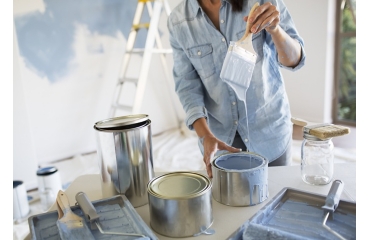
Overview
Toxins are poisonous substances that can harm your body. If your doctor is concerned that your symptoms are caused by exposure to a toxic substance, they may ask you about your home, your work, your family, and other aspects of your environment.
You also may have blood tests or X-rays to find out if a toxin is in your body. For example, you may have been around smoke from a fire. Or you may have been around fumes from paints, solvents, or waste products from workshops or factories. But in some cases it may be hard to find out what you may have been exposed to. Sometimes it can take years before you have symptoms. For instance, a miner may have lung disease many years after working in mines. And being exposed to some toxins can make health problems you already have worse.
Follow-up care is a key part of your treatment and safety. Be sure to make and go to all appointments, and call your doctor if you are having problems. It's also a good idea to know your test results and keep a list of the medicines you take.
How can you care for yourself at home?
- If you think you may have been exposed to a toxin but are not sure what it might be, try to keep a written record of your symptoms. Note when and where you have symptoms. And note any possible health hazards. For example, you may find out that you feel sick to your stomach during your workweek, but you feel better on weekends.
- It may help to increase the amount of fresh air in your home.
- If you can, try to control your exposure to hazardous materials.
- Avoid cigarette smoke. Cigarettes contain many chemicals that are hazardous to your health.
- Keep your home clean and as free from dust as you can. Dust can irritate your lungs.
- Be aware of carbon monoxide. Get a carbon monoxide detector for your home. Carbon monoxide comes from cars, space heaters, and other heat sources. It can be deadly.
- Be careful with chemicals. When you use cleaning or home improvement products, make sure to open windows or use an exhaust fan. Never mix household chemicals, such as chlorine and ammonia. Some mixtures can create toxic fumes that can be deadly.
- Read the label on house and garden chemicals. Be sure to follow all safety directions. Try to limit your use of lawn and garden pesticides.
Keep in mind that the farther away you are from a hazardous source, the less exposure you will receive.
When should you call for help?
Call 911 anytime you think you may need emergency care. For example, call if:
- You have trouble breathing.
- You have chest pain.
Call your doctor now or seek immediate medical care if:
- You get household chemicals in your mouth or eyes. Call the Poison Control Hotline (1-800-222-1222).
- You think you may have been exposed to a hazardous material.
Watch closely for changes in your health, and be sure to contact your doctor if:
- You do not get better as expected.
Where can you learn more?
Go to http://www.healthwise.net/patientEd
Enter B226 in the search box to learn more about "Exposure to Toxins: Care Instructions".
Current as of: October 24, 2024
Author: Ignite Healthwise, LLC Staff
Clinical Review Board
All Healthwise education is reviewed by a team that includes physicians, nurses, advanced practitioners, registered dieticians, and other healthcare professionals.

